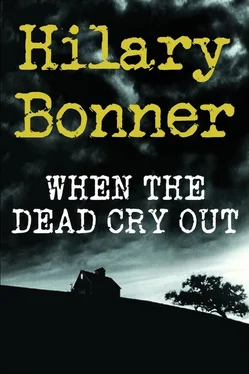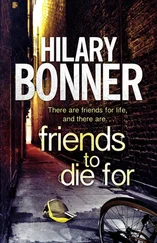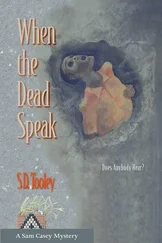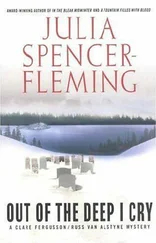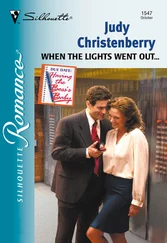“I know you’re involved, Kelly, yes, I do.” She looked at him quizzically. “As for who cares most — well, it’s not a competition.”
“Don’t be tricky,” he instructed.
She grinned at him.
He leaned back in his chair, and took a deep swig of his coffee before continuing. Karen knew him well. She guessed he was wishing it was a large Scotch. He had once told her that he didn’t think he would ever stop missing alcohol.
“I was up in London last night for a farewell do for one of my few remaining mates in The Street, Jimmy Finch,” he began. “Ended up having quite a conversation with him...”
He paused, glancing at Karen to see if she registered the significance of what he had just told her. Karen looked blank. She didn’t have a clue who Jimmy Finch was.
“He’s the Sun man who handled the Marshall buy-up.”
Light dawned. Karen was interested now, all right.
“Surprised you didn’t know the name from his byline—”
“Just get on with it, Kelly,” muttered Karen. “Only journalists notice bylines. I’m surprised you haven’t learned that by now.”
Kelly pulled a face at her.
“Anyway, he was full of it,” he began. “It is the crime story of the year, after all, if not the decade, even if the Sun getting it was down to their chequebook rather than the skills of their journos. There was an element of gloating at first, but he’s sound, Jimmy Finch, and a bloody good reporter...”
He told her all of it then. And although in many ways his story merely added weight to what she already believed, it was a whole different ball game to hear that Richard Marshall had actually damn near made a confession. Albeit in a pub after a skinful. There were, however, a number of points which bothered her.
“The man’s not talked in almost thirty years,” she said. “He’s been interviewed again and again by some of the best in the business, he’s been cross-examined in court, and he’s stayed tight as a drum. Why on earth would he put himself at risk like that?”
“I don’t think he saw any risk, and the bastard’s probably right, isn’t he?”
“More than likely.” Karen sighed. “I don’t know if there’s any point, but this Jimmy Finch, if we looked him up would he go on the record with this?”
Kelly shrugged. “I doubt it,” he said. “Finch is a wily old hand. He knows the law inside-out, and unlike prats like me and you, I suspect, he knows better than to ever get personally involved. He’s always just done his job like a sensible fellow. And if he and his newspaper go on record to say that Marshall has confessed, they put themselves in the wrong, don’t they? Newspapers aren’t supposed to pay money to criminals for anything, let alone a pack of lies about a murder. It’s a tightrope, Karen, and the Jimmy Finches of this world know exactly how to walk it.”
Karen nodded. She knew the type well enough. “In any case, there’s no evidence, is there?” she said. “You’ve told me he didn’t tape what Marshall said.”
“No chance. Marshall would never fall into that trap, even out of his brains.”
“No.” She drained her red wine. “I’ll think about it overnight, Kelly,” she went on. “But I really don’t know what we’re going to be able to do about it, if anything.”
The reporter shrugged again. “Neither do I,” he replied flatly. “I just thought you ought to know, that’s all.”
“Thank you.” Karen stared at him hard. “There’s something else I’d like to know, Kelly. Why do you care so much about this one? You must have a reason.”
Kelly smiled. “Not really. I just go back a long way with that bastard Marshall, same as you do.”
He spoke easily enough, but Karen was somehow quite sure there was something he wasn’t telling her. The something that Bill Talbot had hinted at all that time ago in the pub. She made a mental note to call Bill the next day and find out exactly what her old boss had been getting at.
First thing, though, she had another call to make. As soon as she got into her office she phoned the chief constable and passed on everything that Kelly had told her.
“I just wanted you to be aware of this development, sir,” she told him.
She could see no way that any action could sensibly be taken, but apart from anything else she was beginning to learn to play politics. Just a little. And about time, too, she reflected. She had a personal situation which might turn sour on her professionally at any time, and she had already had a very narrow escape over the Marshall affair. It could have ruined her career, and it still promised to do it little good. A good start in her determination not to let anything like it happen again was to try to improve her relationship with the CC, and at least keep him informed of everything, keep him up to speed at all times. That way triumphs and disasters were both at least partially shared and it was a lot less easy for the likes of Harry Tomlinson to make a scapegoat of her at will.
Nonetheless, the chief constable’s response was exactly what she had expected.
“Hardly a development, Karen,” he responded. “Even if this confession is kosher, we have no proof. And we don’t even know if the journalist is prepared to go on record. Isn’t that the sum of it?”
“More or less,” she replied unenthusiastically. Put like that — and Harry Tomlinson would put it like that, of course — it did all sound a bit of a waste of time. She had, however, known that before she began her conversation with him.
“Karen, even if this Jimmy Finch is prepared to go on the record about everything he was told, for God’s sake, indeed even if he had taped Marshall’s confession, well, the first question must be, is it a confession? ‘Is the Pope Catholic?’ A good barrister would soon sort that out.”
“Well, sir, maybe, but surely everyone understands the expression. It means you’re stating the obvious. It means, yes, of course.”
“It’s ambiguous, at the very least. But, OK, even if you accept that, it still gets us nowhere. Not at the moment, anyway. Double jeopardy is still in place. You don’t overturn a six-hundred-year law overnight.”
For once, Karen had to agree with her chief. And for once he was not even being his usual pompous belligerent self. Indeed, he sounded quite regretful. Perhaps some memories of what it was like to be a policeman did lurk in the recesses of his highly political brain after all, thought Karen. She also reflected that he’d been almost friendly. It seemed that her new approach, her expressed desire to keep her boss informed, had been remarkably effective. She and the CC finished their phone call on the best of terms, which, for them, in any situation let alone under the recent strained circumstances, was a real result, and Karen made a resolution to share her innermost thoughts with him more often. It was not, however, a resolution that she realistically expected to be able to stick to for long.
Rather strangely, her conversation with the chief constable had cheered her up. Perhaps sharing the burden, even with Tomlinson, did work after all. She found herself chuckling as she picked up the phone to call Bill Talbot. The retired detective did not answer. Nether did his wife. And neither was any kind of message service connected.
Karen replaced the telephone receiver on her desk and told herself that was fate. She would not bother Talbot again. What difference could John Kelly’s reasons for being so interested in the case make to anything, anyway? Particularly now. Talbot was probably being melodramatic. Kelly’s professional thirst alone was enough to drive him on with any story, as she knew perfectly well.
There really was nothing more anybody could do about Marshall. It was infuriating, but that was that. The best thing for her and everyone else involved, including poor Sean MacDonald, was to try and forget all about it, to move on and get on with their lives. Hers was becoming quite complex enough without dwelling on the past. Apart from anything else, she needed to concentrate on her relationship with Phil Cooper and make sure that she was in charge of it rather than the other way round — although she feared it may already be too late for that.
Читать дальше
